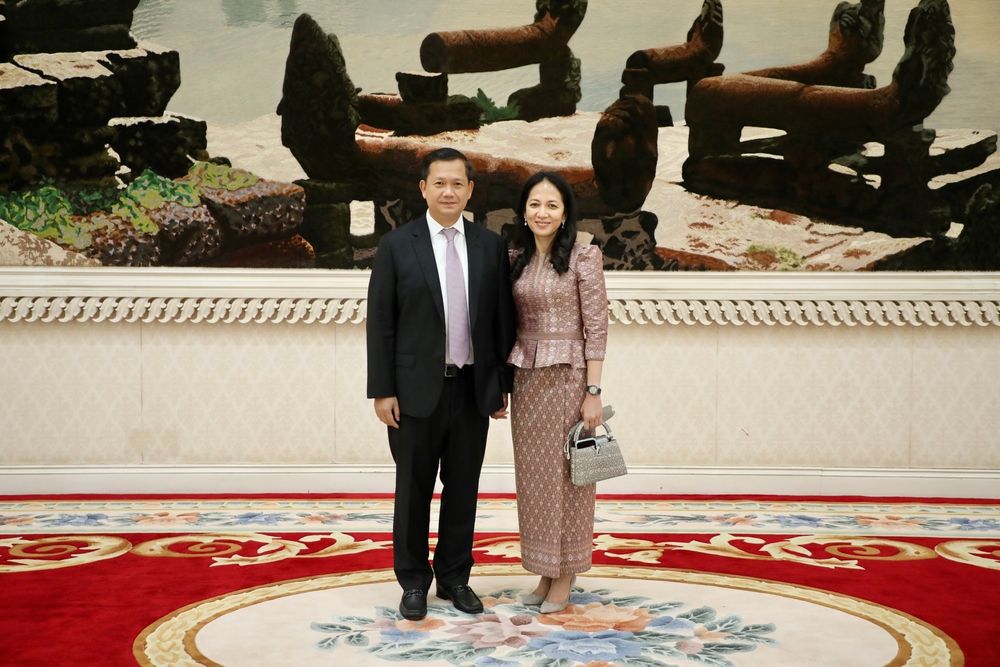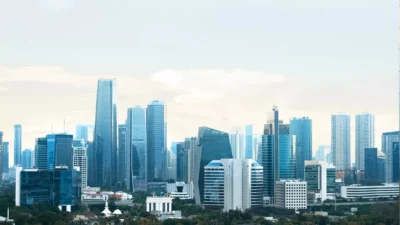New leader, new opportunities: How Hun Manet is shaking up Cambodia’s real estate game
After a year in charge in Cambodia, Hun Manet is overseeing decent economic growth and is widening access to the country’s real estate market for foreigners

Meet the new boss. Same as the old boss. Or at least that is the consensus of many observers one year into Cambodian Prime Minister Hun Manet’s tenure.
It comes as little surprise that Hun Sen’s eldest son is maintaining the status quo of his predecessor who led the Southeast Asian nation for almost four decades.
But what have these inaugural 12 months in charge meant for Cambodia’s economy— and its hugely significant real estate and construction sector?
Following an initially sluggish recovery from the pandemic, the Asian Development Bank expects Cambodia’s economy to grow by 5.8 percent in 2024. Still, the figure is some way off the pre-Covid annual growth rate of 7.6 percent between 1995 and 2019.
A key factor for this relative slowdown is the poor performance of the country’s real estate and construction sector, which reportedly contributes about 10 percent to GDP. The sector grew by only 0.5 percent in 2023 and 0.2 percent in 2022, and the Cambodian Valuers and Estate Agents Association (CVEA) says it may take another three years to reach pre-pandemic levels.
“Everything always has a history and a journey. I believe improvement will come around 2026-27, possibly mirroring the peak conditions of 2018-19,” notes Sorn Seap, the CVEA chairman and chairperson of the PropertyGuru Cambodia Property Awards’ judging panel.
Amongst the major issues currently facing the industry is the soaring inventory levels. As of Q3 2023, the capital Phnom Penh was home to more than 53,000 completed condominium units. The high supply has considerably intensified competition, particularly in the condominium market.
This has exerted considerable pressure on pricing and occupancy rates, with developers and landlords competing fiercely with one another for the same pool of tenants. Subsequently, 2023 witnessed the lowest number of landed property launches in Cambodia in a decade, according to Lawrence Lennon, managing director of CBRE Cambodia.
“It’s great if you’re a consumer, a buyer or a renter, there’s never been a better time to find quality stock, quality shopping malls, quality offices, great condominiums and great locations, but the reality is, if you’re on the sell-side, if you’re a landlord, it’s very challenging,” he said at a CBRE event earlier this year.
A wider concern for the country’s coffers is the rise in personal debt in recent years. As of late 2023, consumer finance debt reached a record high of more than USD 15 billion, according to the Credit Bureau of Cambodia, with an increase in late payments, indicating rising default risks, especially in personal finance loans.
The economic conditions affecting borrowers’ ability to service their debts further complicate the situation. High levels of debt in Cambodia’s real estate sector highlight the challenges of financial management among consumers and reflect broader economic vulnerabilities, with the World Bank recently noting that it could impact the nation’s macro-financial stability.
The government is already working with the National Bank of Cambodia to implement stricter lending regulations in response to the high levels of personal and corporate debt, particularly within the real estate sector. These measures are designed to curb excessive borrowing and ensure financial institutions engage in responsible lending practices.
Elsewhere, Hun Manet’s government has continued to encourage foreign investment to boost the sector. This includes relaxing certain regulations to make it easier for foreign investors to purchase property and invest in large-scale projects, as well as allowing foreigners to use Cambodian representatives for property purchases, where the land titles would list a Cambodian as the owner, but separate contracts would protect the foreign investor’s interests.
“The new policies include significant tax incentives, particularly for properties below USD70,000, making ownership transfer dutyfree, and allowing developers to reduce tax payments by splitting them into manageable amounts,” explains Seap.
He adds that Sihanoukville will likely benefit from these initiatives. Before the pandemic, the city had become a hotbed for Chinese investors, reshaping its economy and landscape with the rapid construction of buildings and casinos. This growth, however, led to challenges including environmental damage, labour issues, and displacement of locals. The retreat of investors due to Covid-19 and China’s overseas gambling restrictions then left the city with numerous unfinished projects.
Relaxing certain regulations will make it easier for foreign investors to purchase property and invest in large-scale projects, as well as allowing foreigners to use Cambodian representatives for property purchases
“Promising real estate markets are those with well-developed transportation infrastructure and the potential for owners to earn quick returns or high profits,” according to Seap. “In particular, coastal Preah Sihanouk province, which currently has many unfinished projects, will experience rapid growth in the future. This belief is based on the patterns observed in the Chinese real estate market, where rapid development often begins in coastal cities.”
As Hun Manet’s first year at the helm concludes, the sector remains a mixed bag of challenges and gradual revitalisations. Initiatives to attract foreign investment and manage soaring personal debt at least reflect a nuanced approach to economic stewardship. And with significant policies targeting areas like Sihanoukville, cautious optimism abounds for a recovery in an industry that remains essential to the country’s economic growth.
This article was originally published on asiarealestatesummit.com. Write to our editors at [email protected].
Recommended
Exploring A Life By Design’s maximalist approach to interior design
Andrea Savage is embracing the maximalist trend with bold and vibrant interior designs
Jakarta’s emerging innovation hub integrates tech and healthcare sectors
The Digital Hub in BSD City is being positioned as Indonesia’s counterpart to Silicon Valley
Philippine real estate sees growth in regional markets despite challenges in Metro Manila
Amid pressures, developers and investors are capitalising on a range of opportunities to drive growth in the nation's real estate sector
Bali leads the charge in Indonesia’s rental boom while other regions struggle to keep pace
The rental market is soaring in Bali due to its rich cultural heritage and island charm, while other regions of Indonesia are experiencing less success







